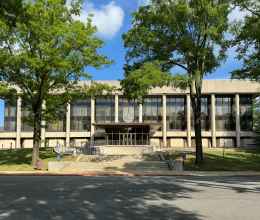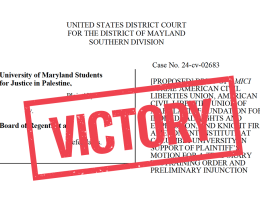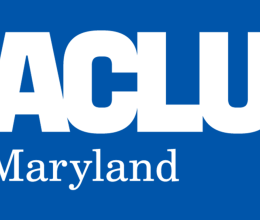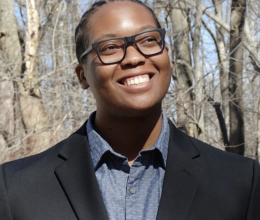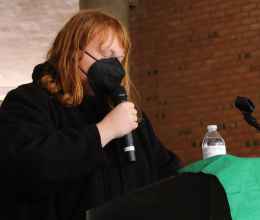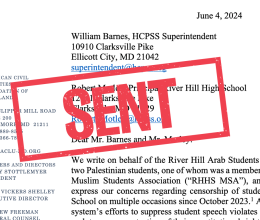
Following an incident during which a town official blocked a 12-year-old girl from playing her guitar for tips next to her grandparents' booth at a Farmers' Market in the town park, the ACLU of Maryland has advised Chestertown officials to halt the enforcement of an ordinance that restricts the free speech of artists and performers in public spaces. In a letter sent on September 17, 2012, the ACLU recommended that Chestertown immediately halt the enforcement of the unlawful ordinance.
According to complaints the ACLU received, an incident occurred in Chestertown Town Park where the Mayor sought to enforce an unconstitutional ordinance against a young musician. On June 9, 2012, 12-year-old Casey Ottenwaelder was sitting with her grandparents, who sell wool yarn at the Farmer's Market in the Chestertown town park and playing her guitar with a hat available should anyone wish to tip her, as she had done on many prior occasions. Ottenwaelder was approached by the Mayor of Chestertown and was told she was not allowed to solicit tips. After the incident, Ottenwaelder's grandmother inquired with the Town Manager and was informed that a Chestertown ordinance prohibits all activities in all public town spaces by individuals or groups without a permit. Since then, the ACLU has learned that several other musicians and performers have been prohibited from performing on town property pursuant to this ordinance.
The Chestertown ordinance, known as the Streets and Sidewalks Code, prohibits "any individual, association, corporation, or organization [from] us[ing] the streets, sidewalks, public rights-of-way, or town-owned property for any event or activity without first obtaining a permit from the town." This ordinance is an unconstitutional prior restraint on speech because it is too broad and because it introduces content-based restrictions on public speech.
First, the ordinance purports to prohibit all forms of speech and conduct in public spaces without a permit. Yet permitting requirements in public spaces are only lawful when they are narrowly tailored to the purpose of managing competing uses of those spaces. In this case, the ordinance goes far beyond these limitations by indiscriminately banning all uses of public spaces without a permit.
Second, the ordinance directs government officials to deny a permit "whenever the town finds that an activity . . . is not in the public interest or . . . is not an historically accepted event or activity." These criteria introduce unconstitutional content-based restrictions on speech. Under the Constitution, the government may not restrict speech in a public space because it disapproves of the content of the speech.
The First Amendment to the U.S. Constitution protects both the right of performers to engage in protected speech in public and the right to solicit funds. Courts have found that artistic expression lies within the First Amendment and that solicitation is a recognized form of speech protected by the First Amendment. The Chestertown ordinance goes far beyond any of the acceptable limits a government may impose on speech in a public forum and should immediately be rescinded.
